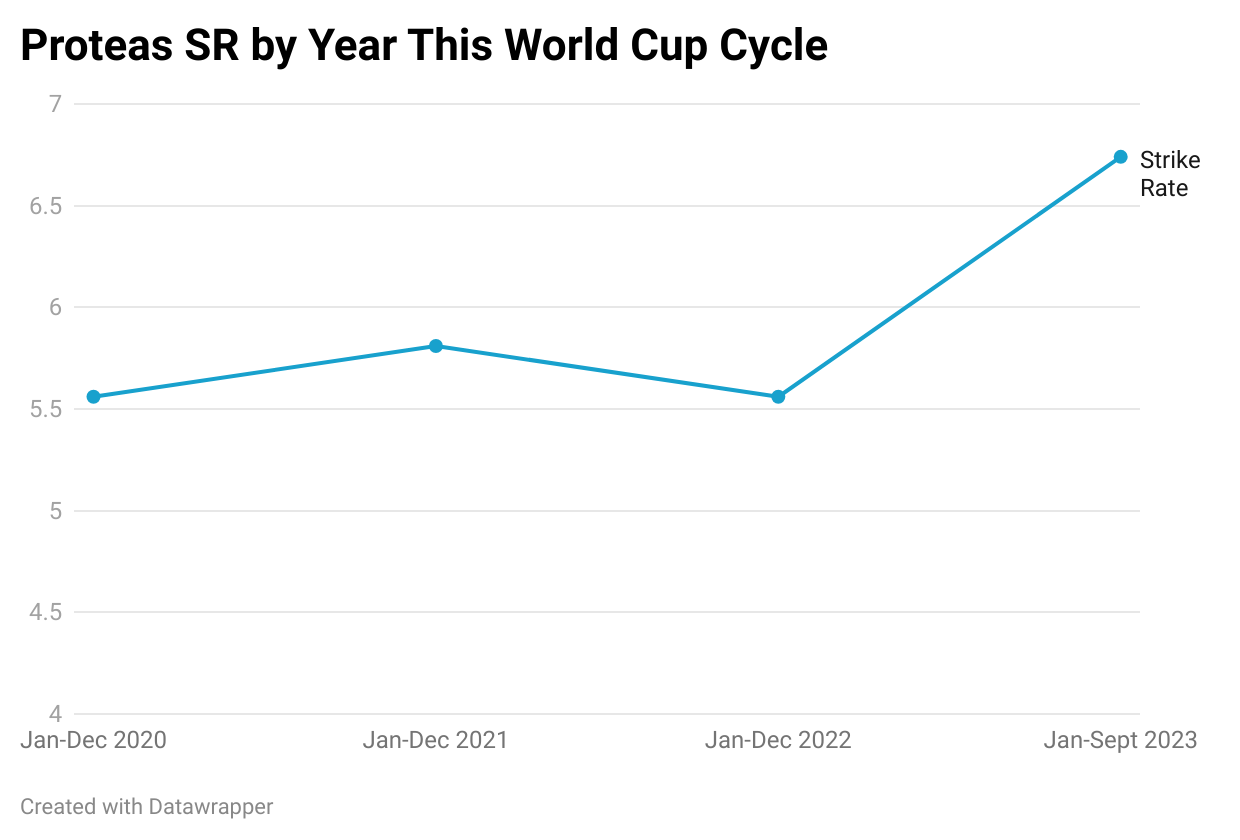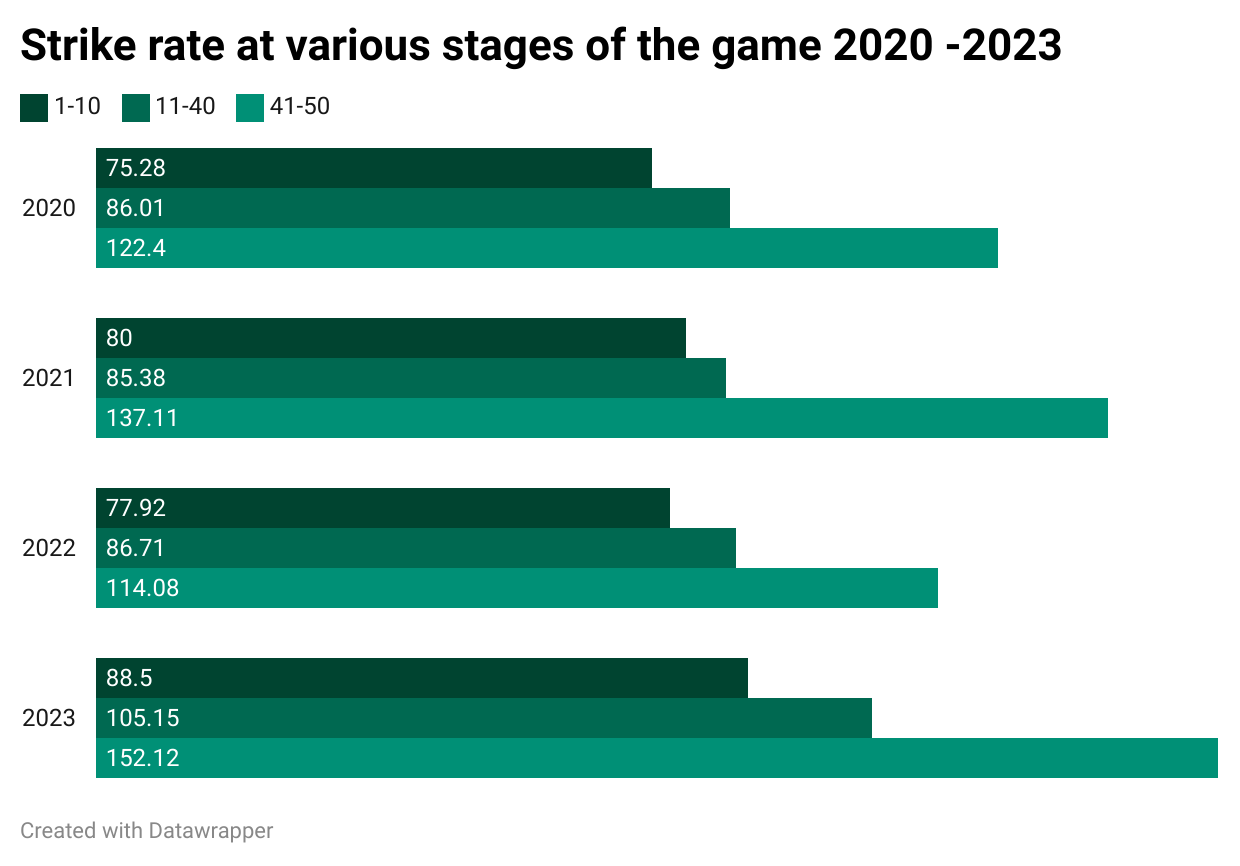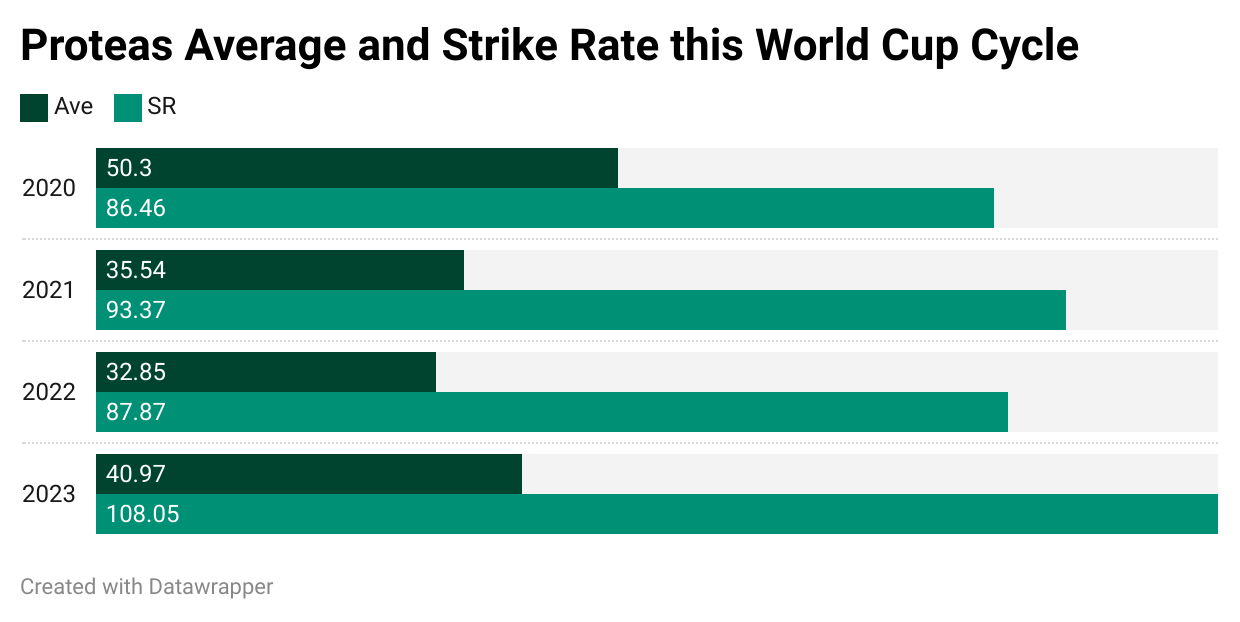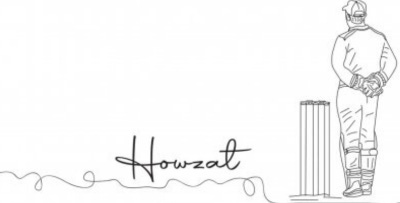Rob's Proteas
What is the cool name for the Proteas' white ball brand of play? Rob-ball just doesn't sound good enough.
I looked at the numbers. I can report to you that there is something happening with Rob’s Proteas. Let me tell you about it. But first things first: you can support this newsletter by buying me a coffee:
And if you haven’t subscribed, here is a button:
After the drubbing the Proteas suffered at the hands of Australia in the T20I series, it was hard to argue that there was a plan in the works. Jacques Faul describes Walter as process-driven, but the Proteas had lost three T20Is and two ODIs against the Australians. They were five-nil down. From a distance, it all just looked like a shambles. So, I shelved an article on Rob Walter's philosophy I was working on. How could I tell you, my dear readers, about Rob Walter when it looked like the Proteas were in free fall?
How could I tell you that according to Jacques Faul, the Titans CEO, Rob Walter knows how to build teams because he believes in processes and culture? “He does not put his ego first, which is good. He approaches things like a scientist. You can quote me on this, him and Gary (Kirsten) are the guys that impress me with emotional intelligence,” says Faul.
Who would care that Albie Morkel, who was the Titans captain when Walter coached them, says one of Walter’s strengths as a coach was his ability to form relationships with all players around him because he did not have a cookie-cutter approach to relationships? “His personality allows you to connect with him very easily, and he has the ability to treat every player in his own manner/way. That helps you to relax and forms a strong bond and working relationship,” says Morkel.
When the results are bad, no one wants to know of that. It is even worse when the bad results are against the Australians.
This newsletter is completely reader-supported. If you’re willing and able, please consider supporting it in one of two ways, leaving a tip or becoming a Patreon. Thank you so much for your time and investment!
And then the Proteas won the last three games. Things were looking up. But, I am not writing this because the Proteas came from behind to pull off a 3-2 series win after being 2-nil down, although that makes a nice storyline. What stands out is not that they pulled off a series win, but how they did it. 111, 164 and 122 runs are huge margins of victory. The Proteas dominated.
Faul’s voice rang in my ear again. “After he took over at Titans, we were really dominant, especially in white ball cricket,” he told me.
In his three-year reign, Walter shepherded the Titans to four domestic titles. In that period, Walter transformed the franchise’s batting. Their strike rate increased. They were explosive and attack-minded. The Titans didn’t just produce barnstorming performances but were more consistent and scored big. Their top and middle order produced 22 centuries in two seasons.
"Rob encouraged us to explore and expand our games. Training was precise and role-specific under him. He pushed us to be the best versions of ourselves," says Albie Morkel, whose batting blossomed under Walter's guidance at the Titans.
Walter has carried the approach into the Proteas change room. At the various training camps held this year, Walter and JP Duminy, the Proteas batting coach, have encouraged batters to be more attacking. Every batter that I have spoken to said the emphasis was on players getting into scoring positions against every delivery.
Look to score from the first ball you face, has been the message. This has had interesting results. The Proteas are turning into an uber-attacking team. During the series against Australia, they scored at a rate of 6.47 runs an over. This is a huge step from their previous run rate of 5.64 runs an over between January 2020 and December 2022. This is a high figure, but 6.47 is 0.27 runs lower than their average strike rate this year.
Taking the aggressive option is a risk, there is a chance of dismissal. But, it is no longer a risk to one’s position in the team. “The difference between playing for South Africa and playing in the IPL is that in the IPL, teams bank on a batter playing a match-winning knock once in three or four games. The Proteas want a consistent player,” Klaasen told me in 2020.
When Heinrich Klaasen broke into the national team, he was asked not to change his game, the Proteas wanted an aggressive middle-order batter. Then he got out twice, in succession, playing aggressive shots, for low scores. He wasn’t just dropped from the starting XI, he found himself at the back of the line. The Proteas preferred consistency over matchwinners.
That is not something the current team has to worry about, Walter is clear about the brand of cricket he wants and he is consistent in his messaging. “Our philosophy is to assess where the game is at and take the most positive option relative to the match situation,” said Walter.
This approach suits the Proteas’ top six. They are shot-playing players. They are unchained. They have the freedom to express themselves in the roles that Walter has spelt out for them. This is a different Proteas side. Same faces and same names, but different levels of intent.
In the past, the Proteas did what they could in the PowerPlay, knocked the ball around in the middle overs and then went mental in the death overs. In 2023, they do what they can in the PowerPlay; turn into peak Eoin Morgan and Ben Stokes in the middle overs - go at a run-a-ball or more without losing wickets - and then go ballistic in the death overs.
Here is the kicker, they are not just recklessly slogging. The Proteas are not losing a lot of wickets while they bat at this rate. They average 40.94 runs per wicket. This is not their highest average in this World Cup cycle, in 2020 they averaged 50.30, then 35.54 in 2021 and 32.85 in 2022. But, combine their current average with their current strike rate, this team is cooking.
Before the Rob Walter era, South Africa's top six was doing enough to put South Africa in the top three teams by strike rate. Given the license to hook, pull, ramp, paddle and sweep, the Proteas' top six are not wielding bats, they each have an Excalibur and are scything bowling attacks. They are now challenging England on batting intent. And, unlike in the past few years where they had forfeited the idea of someone with batting ability at number seven, the Proteas also have a shiny new number seven with really long levers in Marco Jansen.
If you found this interesting, please share it:
You can support Stumped! by leaving a tip:
Thanks for reading. Until next time… - CS








